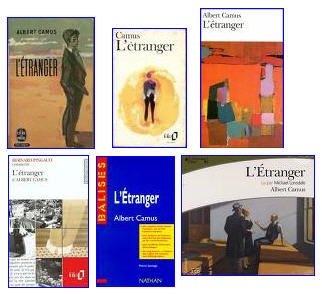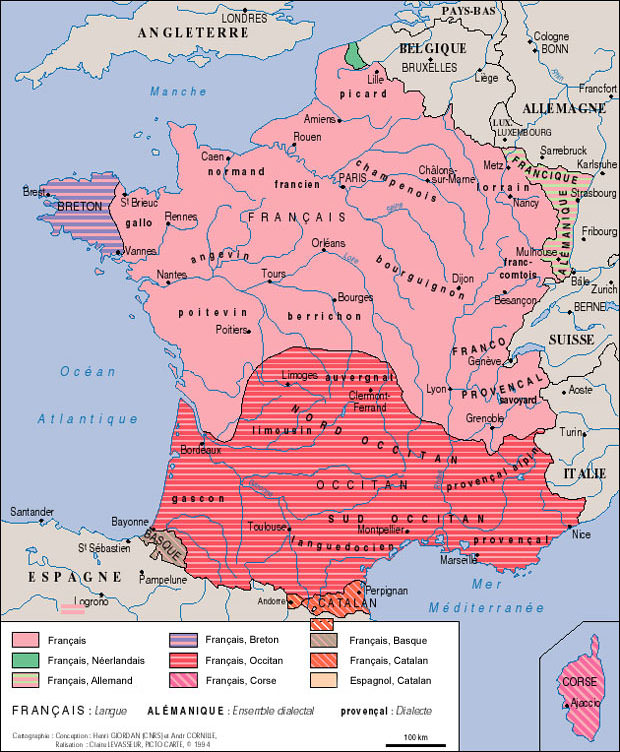![‘… a parler, bien sonere et parfaitement escrire douce frances qu’est la plus belle et la plus gracious langage et la plus noble …’ [A detail from a manuscript of the Manière de langage, Cambridge University Library, MS Dd.12.23, f. 67v.]](https://farm4.staticflickr.com/3847/14940771507_dc23047502_o_d.png) ‘… a parler, bien sonere et parfaitement escrire douce frances qu’est la plus belle et la plus gracious langage et la plus noble …’[A detail from a manuscript of the Manière de langage, Cambridge University Library, MS Dd.12.23, f. 67v.]
‘… a parler, bien sonere et parfaitement escrire douce frances qu’est la plus belle et la plus gracious langage et la plus noble …’[A detail from a manuscript of the Manière de langage, Cambridge University Library, MS Dd.12.23, f. 67v.]
posted by Edward Mills
For those of us who are fortunate enough to study languages, holidays can be a great way to practise: there’s nothing like embarrassing your parents by ordering their train tickets for them. If you don’t speak the language, though, there is one trusty route to fall back on: the phrasebook. As an idea, phrasebooks have a long history; much longer than you might otherwise think when leafing through a Collins or a Berlitz. Some of the earliest manuals that we possess today were written for learners of French in England in the high and late Middle Ages; still objects of study today, they offer a fascinating insight into how languages were taught over five centuries ago. To illustrate this, I’ll be taking three examples, from consecutive centuries: the Tretiz, written by the wonderfully-named Walter de Bibbesworth around the second half of the 13th century; a Manière de langage from 1396; and a fifteenth-century general primer, the Liber Donati (named after the Latin grammarian Donatus).
These three texts were all written in England, and the circumstances in which they were produced reveals a great deal about the esteem with which French was held in the later Middle Ages. French was widely spoken in what is today Britain in the wake of the Norman Conquest, as part of a (very interesting indeed) triglossia[1] with Latin and English, but as interactions with the continent became more frequent the value of learning French for non-native speakers greatly increased. This is why the Manière de langage is able to state its purpose so boldly: ‘Ci comence la maniere de language que t’enseignera bien a droit parler et escrire doulz françois selon l’usage et la coustume de France.’[2] Assuming on the part of the reader a basic knowledge of the Anglo-Norman dialect of French, all three of these texts aim to educate an English audience that needs vocabulary specific to certain situations.
Of course, all of this may well ring bells — that essentially remains the purpose for the modern phrasebook today. Nor is it an alien concept for textbooks to be written in what is termed the ‘target language’: how many times have you read the phrase ‘corrigez les phrases suivantes’, or else ‘écoutez et répondez’? In a wonderful example of differentiation by prior knowledge, Walter of Bibbesworth’s Tretiz and the Liber Donati even include annotations (‘glosses’) offering English translations for more complicated French terms — ‘berce’ is glossed as ‘cradel’,[3] ‘espaule’ as ‘scholderbon’,[4] and ‘autre fois’ as ‘anoth tyme’.[5]
Another similarity with present-day phrasebooks comes in the way in which new material is presented. We’re all familiar with the hackneyed, slightly stilted dialogues that fill the pages of Encore Tricolore or Élan, so it should come as no surprise that most of the new terms in the medieval texts are first seen in dialogue form. The Manière de langage and the Liber Donati both present the characters of the traveller and his servant (intriguingly called Jehan in both texts) as a focalising device through which the reader can see themself. Here again, similarities abound, as the topics of conversation — a good indication of what it was judged as important to learn — are practically identical to today. The Liber Donati provides an example of how to book into a hotel:[6]
— Hostilier, hostilier.
— Sir, sir, je su cy.
— Purrons nous bien estre loggez ciens?
— Oy, certez, mez maistrez … Combien estez vous en nombre?
While on the road, whether in 1300 or today, it’s also important to be able to ask for information from people you meet. Thankfully, the Manière de langage is here to help, providing multiple ways of how to ask for the time:[7]
Et puis le sr s’en chivalche sur son chemyn, et quant il venra ou my lieu de la ville, il demandera du primer homme qu’il encontrera, ainsi : « Mon ami », vel sic : « Biau sire », vel sic : « Biau filz, quelle heure est-il maintenant ? » Vel sic : « Qu’est ce qu’a sonnee de l’oriloge ? »
But perhaps the most striking similarity between the Collins Gem in your pocket and its medieval equivalent is to be found not in vocabulary, but in grammar. The concept of gender, always tricky to explain, is dealt with in the Tretiz just as it often is today: by looking at the body. Just as we introduce the concept of gender by focusing on the agreement in the phrases ‘j’ai les cheveux noirs’ (m.pl.) or ‘j’ai de longues jambes’ (f.pl.), the Tretiz explains the best way to teach your children the concept of gender is through the human body. Plus, it will stop your darling child from being mocked:[8]
Et quant [un enfant] encurt a tele age
Qu’i[l] prendre se poet a langage,
E[n] fraunceis lui devez dire
Cum primes deit sun cors descrivre
Pur l’ordre aver de ‘moun’ e ‘ma’,
‘Ton’ e ‘ta’, ‘soun’ e ‘ça’, ‘le’ e ‘la’
Qu’i[l] en parole seit meuz apris
E de nul autre escharnis.
There’s a huge amount more to be said about these books, whether it be what happens in the narratives that they construct, the individual manuscripts in which they survive, or the complicated relationship between French and English during this period. For now, though, I hope this short foray into the medieval world through the medium of tourism has left you with a sense that your A-Level textbook has a long history behind it. When you’re next grappling with the pluperfect tense, just remember that you’re not the first — some time around 1447, readers of the Liber Donati were faced with another element that would not look out of place today:[9]
J’avoy enseigné, tu avoiez enseigné, il avoit enseigné, nous avoions enseigné, vous avoiez enseigné, ils avoient enseigné.
I find it fascinating to think that all of the things we think of as ‘modern’ tools to learn a language — vocabulary primers, sample conversations, even verb tables — have existed for centuries, in forms we can still look at today. While the medieval learner of French may not have had WordReference on his iPhone, the influence of the tools that he did have can still be felt today. As the (nineteenth-century) French writer Jean-Baptiste Alphonse Karr would say, ‘plus ça change, plus c’est la même chose.’
If you’re interested in reading more about medieval French literature, there are many excellent websites out there. Websites such as the British Library’s Medieval Manuscripts Blog and the Medieval Fragments project are a great place to start; I also wrote a more general introduction to medieval French over at the University of Cambridge’s Be Cambridge blog. The Manière de langage is also available online here.
Edward Mills is a postgraduate student in medieval French literature at Wolfson College. Thanks very much to Daron Burrows for proof-reading prior to publication.
1. ‘Triglossia’ refers to a situation wherein three languages are spoken in a given space. See also ‘diglossia’, the phenomenon of two languages being spoken in a given space, and Polyglossia, the University of Cambridge’s student-run modern languages journal (which I definitely wasn’t involved with. Nope. Never.) [↵]
2. Manière de langage, p. 382. “Here begins the Manière de langage which will teach you the proper speech and writing of sweet French as it is used in France.”[↵]
3. Tretiz, l. 7. [↵]
4. Tretiz, l. 98. [↵]
5. Liber Donati, p. 18. [↵]
6. Liber Donati, p. 20. “Innkeeper, inkeeper. / Sir, here I am. / Can you house us here? / Certainly, sirs … how many are you?” [↵]
7. Manière, pp. 394-95. “And then the sire continues on his way, and when he finds himself half an hour away from the town, he asks the man whom he meets, thusly: ‘Friend,’ or ‘Good sir’, or ‘Good man, what time is it now?’, or ‘How many times has the clock sounded?'” [↵]
8. Tretiz, ll. 21-28. “And when [a child] reaches such an age / That he may apply himself to languages, / You should first tell him in French / How to describe his body / By proper order of ‘mon’ and ‘ma’, / ‘Ton’ and ‘ta’, ‘son’ and ‘sa’, ‘le’ and ‘la’; / So that he be better educated in speech / And not be mocked by others.” [↵]
9. Liber Donati, p. 11. [↵]

 posted by
posted by 








![gauls_color[1]](http://lurkio.co.uk/blog/wp-content/uploads/2013/02/gauls_color1.jpg) The Gauls were a Celtic people who settled France some time around 600 BC. They weren’t the first people to arrive in France: the cave paintings at Lascaux were painted fifteen thousand years earlier, and stone tools have been found in the Hérault département that date back one and a half million years. The Gauls came to dominate the culture and language spoken in the territory that would become France, however. Only the Basque language spoken in the far south-west and across the border in northern Spain preserves an echo of the speech of earlier populations. For French, the Gauls are our starting point. While the Gauls may be the ancestors of many modern French people (and many more, raised on the adventures of Asterix and Obelix, would very much like to think so), their language has left much less of an imprint on French than that of the invaders who were to conquer them, the Romans. Latin is the real root of modern French, as we’ll see in a later post, imported into France by the conquerors to be the language of trade and administration, and gradually filtering down to supplant the Gaulish language over the course of six centuries. Gaulish was not entirely wiped out, though: it survives as a language through Breton, one of the family of modern-day Celtic languages that includes Welsh and Gaelic. And if you look carefully you can find a few Celtic remnants scattered in the French spoken today as well.
The Gauls were a Celtic people who settled France some time around 600 BC. They weren’t the first people to arrive in France: the cave paintings at Lascaux were painted fifteen thousand years earlier, and stone tools have been found in the Hérault département that date back one and a half million years. The Gauls came to dominate the culture and language spoken in the territory that would become France, however. Only the Basque language spoken in the far south-west and across the border in northern Spain preserves an echo of the speech of earlier populations. For French, the Gauls are our starting point. While the Gauls may be the ancestors of many modern French people (and many more, raised on the adventures of Asterix and Obelix, would very much like to think so), their language has left much less of an imprint on French than that of the invaders who were to conquer them, the Romans. Latin is the real root of modern French, as we’ll see in a later post, imported into France by the conquerors to be the language of trade and administration, and gradually filtering down to supplant the Gaulish language over the course of six centuries. Gaulish was not entirely wiped out, though: it survives as a language through Breton, one of the family of modern-day Celtic languages that includes Welsh and Gaelic. And if you look carefully you can find a few Celtic remnants scattered in the French spoken today as well.


